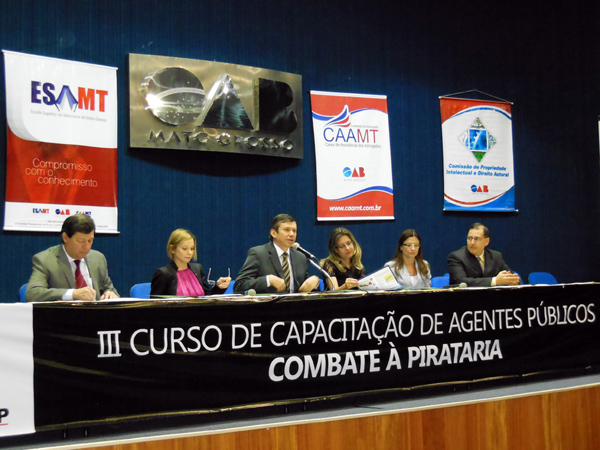
An event held in the city of Cuiabá, in September, marked the announcement of the launch of the Cidade Livre de Pirataria Program in the capital of Mato Grosso and neighboring Várzea Grande. The program also included training for the training of public agents. The agreement between the two municipalities and the Ministry of Justice, which will be signed soon, will increase the number of participating cities to eight.
ETCO's executive director, Heloísa Ribeiro, present at the event, was very optimistic about the entry of new cities into the program. “As the 2014 FIFA World Cup approaches, the fight against piracy has become one of the priorities of the host cities, which have become ETCO's main focus for implementing the program”, explains Heloísa. Since 2009, ETCO has been working on the dissemination of Cidade Livre de Pirataria, which already has São Paulo, Curitiba, Brasília, Belo Horizonte, Osasco and Rio de Janeiro. According to Heloísa, in addition to Cuiabá and Várzea Grande, 8 more cities are already in negotiations to implement the program.
The president of the OAB / MT Intellectual Property and Copyright Commission, Geraldo Macedo, explained that the target audience for the training was public agents who deal directly with situations involving the search and seizure of illegal products, such as military, civil police, federal and highway officials, as well as criminal experts and municipal guards. Organized by the National Forum Against Piracy and Illegality (FNCP), the seminar provided guidelines for recognizing products that may be targets of piracy, such as electronics and cell phones, glasses and watches, cigarettes, software, shoes, sports equipment, toys, among others. others.
Macedo points out that “as soon as Brazil committed itself to hosting the 2014 World Cup, it became responsible for inspections and for the training of public officials to prevent the misuse of its symbols”. Geraldo Macedo suggests that government officials pay attention to the General Cup Law (Law 12.663 / 2012), already in force, where all these issues are regulated.
The executive director of ETCO emphasizes the importance of support from the OAB / MT Intellectual Property and Copyright Commission. "Counting on civil society organizations is fundamental to the success of the program, and the support of the OAB / MT was decisive for the implementation of the agreement".



